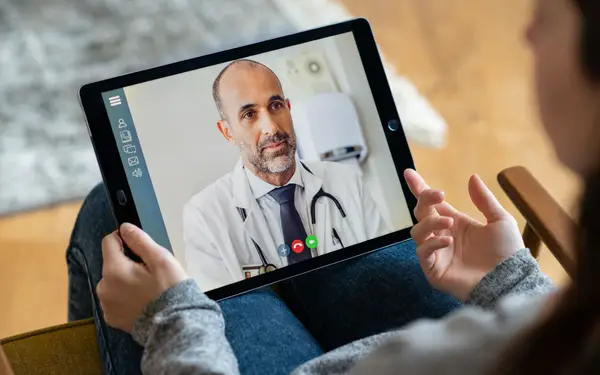The health and life sciences sector has been one of the most aggressive in spurring innovation historically, with tremendous resources allocated to technology-driven research and development (R&D). Pharmaceutical and biotech companies spent nearly USD 200bn on R&D in 2019, with health spending representing about 10.5% of global GDP, or some US$15trn, according to Deloitte. With a global health crisis dominating headlines in 2020, and prescription drug sales set to rise to US$1.2trn by 2024, it's no wonder the industry was among the first to embrace digital transformation to improve the efficiency of internal operations and enhance the way it engages with medical professionals, health insurance providers, and ultimately, patients. Most large international pharmaceutical and biotech companies embarked on their digitalization journey years, if not decades ago, but the process has accelerated rapidly in 2020, along with a clearer vision of the destination.
There are three key capabilities organizations need to develop to efficiently implement a digital strategy, according to John Bessis, Country Manager Greece & Cyprus at Allergan Aesthetics, a subsidiary of Chicago-based AbbVie. Firstly, organizations need to develop digital capabilities that allow them to be closer to their customers and to understand their needs, he said. Secondly, with greater access to granular data that these digital capabilities provide, organizations need to extract precise insights and convert these insights to actions that can address the unmet needs of the physicians and the patients, he added. Third, these digital capabilities need to be used to develop new ways of engagement to sustain those relationships, he said.
"This is the paradox," Bessis said. "Relationships can be reinforced through face-to-face interactions. However, It seems that now, even though face-to-face interaction has been dramatically reduced, relationships with health care providers and patients are taking on new dimensions. It's a new era for us." Adaptability and resilience are among the core competencies pharma companies should be looking for to build within their working environment to meet the challenges of this new era, he said.
"The post-pandemic world will heavily favour companies, including the pharmaceutical industry, that use digital strategies to get closer to their patients and customers in order to apply more insightful actions, doing so with data-driven intelligence from across the organization," Bessis noted, adding, "we have to take advantage of this." The pharmaceutical industry is increasingly turning its focus towards developing special treatments, Bessis said, for which better insights are crucial. "The more insightful actions that we take, and digital transformation will help us, the more we make a difference in physicians' and patients' lives."
The shift from brick-and-mortar to virtual retail has been underway for the past few decades, but many consumers had never made a purchase online until 2020 when the digital sales channel became an existential necessity for virtually every business.
Bausch Health Companies (Bausch+Lomb), a Quebec-based global healthcare company, sells its products to hospitals and clinics, as well as to retailers. Like in many other industries also some OTC/Consumer areas of medical devices started observing a growth of the internet/e-commerce channel. The progressive shift from brick-and-mortar retailers in favour of online retailers started becoming visible also in the Japanese market in recent years. In 2020, this dynamic was further triggered by Covid 19. During the State of Emergency (lockdown) a number of retail stores were closed and also the "prescriptions" market via hospitals and clinics witnessed decreasing foot traffic, according to Gianni Cossar, President of Bausch + Lomb Japan. "Our responsibilities to Japanese patients, doctors and retailers was to keep operating also during Covid, ensuring Business Continuity and continuous shipments of our products. As out physical / on-the-field capability was reduced, digitalization became very important also for us" Cossar said.
On the one hand, Japanese consumers started exploring online versus offline purchases, on the other hand, Covid has also fueled innovation in the industry. For example, some clinics and hospitals have been developing ways to use digital technology to offer remote tests and remote prescriptions to reduce the need for patient visits or the length of chair-time during visits. Our Sales personnel started moving to online meetings, so we had to invest in new and robust platforms to engage clinics and doctors for conference calls to keep supporting and delivering information, he said.
"Our program of online seminars became so relevant that we decided to introduce Bausch + Lomb TV," Cossar said.









